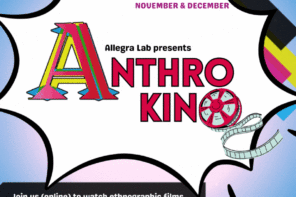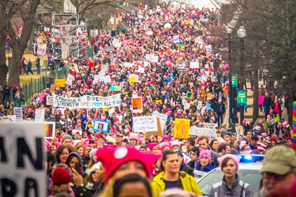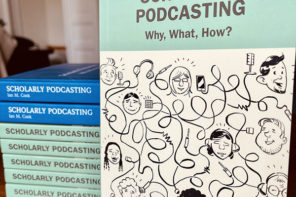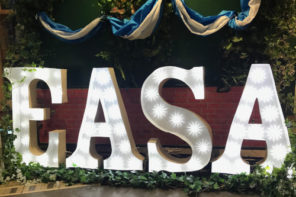Hello Allies! Once again, Aude came up with this wonderful list of events for you, to give you a foretaste of the new academic year about to start. You will find here a bit of something to please the interests of everyone: equality, mobility, linguistics, heroism and…micromachismo! Here are just a few themes for what promises to be a wonderful year!
Do get in touch with Andrea at andreak@allegralaboratory.net or Aude at audef@allegralaboratory.net if you want your event to feature in our next event list or if you feel like writing a short report!
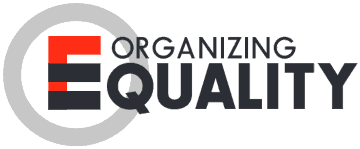
24-26 March 2017, Western University, London, Ontario, Canada
Organizers and advocates for local and global social justice are the lifeblood of solidarity movements worldwide that disrupt historic projects of exploitation, violent dispossession and social fragmentation. Social and economic inequality is a global challenge of the 21st century. The Global North’s Occupy and anti-austerity movement spoke back to the 2008 financial crisis. They now confront the urgent, mass scale migrations of peoples from the Global South to the North, fleeing a colonial legacy of deprivations, militarization, wars and land grabs. Settler societies are also experiencing Indigenous re-centerings, from #IdleNoMore to the Truth and Reconciliation process, and the #BlackLivesMatter cry to enfranchise African diasporas.
It is now increasingly recognized that rising levels of inequality are linked to poverty, discrimination, illness, environmental degradation, and social unrest. It is further recognized that inequality, in turn, is conditioned by and contingent on a range of other factors, including citizenship rights, gender, race, ethnicity, age, location, and education.
But despite this recognition, social movements contesting inequality face serious problems of organization, strategy and tactics. Recent years have shown the limits of traditional trade unionism, occupy and assembly movements, vanguards and new electoral parties alike. They have also shown that anti-racism, anti-violence, LGBTQ and migrant rights movements, to name a few, face major challenges organizing in the face of violence, xenophobia, marginality, impoverishment and under threat of criminalization. Across the board, movements have to reckon with the unprecedented levels of surveillance of the digital networks which have become an important part of their organizing practices.
This conference therefore asks what forms of organization might, in today’s conditions, be most useful to movements for equality. It especially seeks contributions willing to explore new possibilities for the organization of equality struggles. [more]
Deadline for submissions of abstracts: 1 August 2016
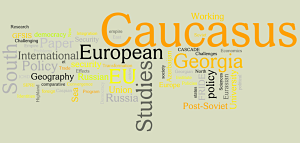
16-17 November 2016, Friedrich Schiller University, Jena, Germany
This international conference will be organised as part of the EU-FP7 CASCADE project by the working group dedicated to issues of migration, mobilities and poverty in the Caucasus.
The central notion to be explored during the conference is mistrust. In contrast to the notion of trust, which has become popular as a social phenomenon in the social sciences of late, the notion of mistrust is mostly overlooked. If at all, mistrust is investigated as the flip side of trust, as an annoying absence and a societal failure. In this vein, post-Soviet citizens such as those from the Caucasus are depicted as notoriously deficient: alienated from the state due to the Soviet past they are still haunted by, incapable of creating a genuine civil society, unwilling to follow the rule of law, relying on personal networks and relations rather than the state apparatus, predisposed to corruption. The most pressing question thus seems to be how to restore trust in the state, and how to foster trust in civil agents and free markets.
With this conference, we intend to take a step back and explore what people actually do when they mistrust. Particular attention will be paid to how mistrust relates to poverty, insecurity and (voluntary as well as involuntary) forms of mobility as widespread experiences in the post-Soviet Caucasus and beyond. We also ask for the constructive potential of practices of mistrust. Can we identify communities of mistrust? May mistrust be culturally coded? If so, what is particular about these codes? Does the sharing of mistrust create new forms of legitimacy? [more]
Deadline for submission of proposals: 31 July 2016

22 September 2016, 13.00-17.30, The Hague, The Netherlands
How and why do people re-appropriate rhetoric from the past in present contexts?
In 2014, the Dutch producer Bakermat released his pop song ‘One Day’ in which he incorporated the famous words ‘I have a dream’. His song became a hit in several European countries. Another example is the re-appropriation of the 1989 slogan ‘Wir sind das Volk’ during the recent Pegida demonstrations in Dresden. The rhetorical use of the past can articulate a certain identity and influence historical consciousness. Especially now, in times of cultural diversity, it is important to gain more insight. How and why do people use references to the past? How can we analyse these practices in text and images? And how do people respond as consumers to these practices?
Keynote speaker: Professor Michael Rothberg [more]
Free access! Register: info@knhg.nl
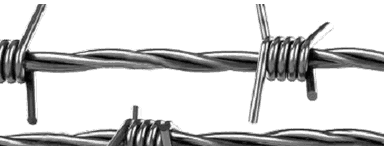
27-28 October 2016, Seville, Spain
Adjusted to political correctness, new ways of formal equality offer a superficial sense of respect for the rights and opportunities of women. However, this formal recognition does not guarantee social justice. On the contrary, it becomes a reinforced obstacle while declaring legal equality, not corresponding to the social dynamics of integration and equal opportunities for women.
“Micromachismo acts” are negative expressions disguised in comments, gestures, attitudes and decisions that still maintain a hierarchy of values between feminine categories and masculine ones. This is a velvety model of equality which patriarchy adapted to political correctness for keeping convictions on gender-based inequalities.
The result is a more complex way to fight against that mutated “machismo”, using the formal language of equality to prevent its effective recognition. These new forms of discrimination of a lower voltage have been described as “micromachismo” and require a more rigorous analysis from the different areas of social reality so to be detected and produce a profound change on gender convictions. [more]
Deadline for submission of abstracts: 18 September 2016
International conference: Heroism as a global phenomenon in popular culture
28-30 September 2017, Freiburg, Germany
In an age of globalization and transnationalism, heroes transcend their cultural spheres of origin and are re-rooted, adapted, and translated in new local contexts across the world. We understand (male and female) heroes as a phenomenon of exceptionality that has a positive significance in relation to the values, ideals and norms of the communities in which these figures are admired, followed, functionalized but also debated. In this process of “glocalization,” popular culture, with its world-wide markets and media, is a driving force. Such different media as films, comics, graphic novels, computer games, or internet blogs construct and disseminate narratives about heroes and heroisms across the globe and are consumed in the Global North as well as the Global South. At the same time, there are centres of dissemination – including Hollywood, Bollywood, or Hongkong – that continue to dominate processes of production and dissemination of hero narratives.
This multidisciplinary conference aims to highlight the complex and interrelated processes of creation, marketing, consumption, and impact, of globalized hero narratives, as well as the numerous cultural flows of exchange that have made them possible since the end of World War II. We are interested in contributions (case studies) which conceive of heroism as a transcultural and transnational phenomenon that may originate in one particular nation but ultimately transcends borders. Questions to be discussed would include how the meanings of heroic figures and narratives are changed in cultural translation, or what specific processes are active in the world-wide exchange of figures and concepts of the heroic. Case studies can focus on situations in Europe, North America, Africa, and Asia. [more]
Deadline for submission of abstracts: 31 December 2016
Featured image (cropped) by José Carlos Cortizo Pérez (flickr, CC-BY 2.0)





